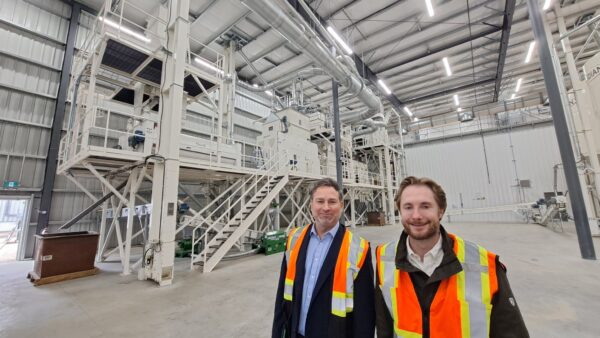
Executive Director
Canadian Seed Institute
As summer ends, CSI’s organic certification program is ramping up with numerous producer inspection reports ready for the final certification decision. Reviewing our clients’ files reminds me of the huge gap in availability of organic seed, one I know our agricultural community could work more effectively together to narrow.
Seed is one of the many inputs for organic crop production that must be compliant with the requirements prescribed in Canada’s organic standards. To be compliant, organic producers need:
- Certified organic seed;
- Varieties suitable to low-input agriculture;
- Varieties that are disease and insect resistant, drought tolerant, and have the ability to tolerate low fertility;
- Non-GE varieties;
- Seed that has not been treated with substances prohibited for use in organic production;
- Inoculants and other compliant seed treatment products.
Sourcing organic seed for producers is a huge challenge.
The primary issue is demand for organic seed far exceeds supply. The supply gap is massive, and choice is extremely limited. Producers often have to consider varieties that are either not well adapted to their growing conditions or not practical to source. Given the gap, organic producers are permitted to use non-organic seed, but only after they have exhausted their search for an organic source. The search, of course, has to be documented. With 4,800 organic producers in Canada, an estimated 3.2 million acres of organic crop production in 2017 (Canada Organic Trade Association 2017 statistics), and an appetite for organic products that continues to grow, the seed supply gap will only increase.
With the massive gap I see massive opportunity. There are potentially thousands of varieties already registered in Canada that could meet the needs of the organic industry — we just need to produce more of these varieties organically. This will require a stronger partnership between the seed and organic industries.
For inspiration, the seed industry could look to the Baute Family Initiative. It’s working to develop varieties specifically to meet the needs of the organic industry. It works in partnership with organic and agro-ecological seed producers and farmers to advance agricultural biodiversity across Canada. The initiative is partnering with farmers and other partners to build a diverse and resilient supply of seed.
As noted in the study The Market for Organic & Ecological Seed in Canada by Marie Eve-Levert, the organic market is dynamic and evolving rapidly, and there is significant growth potential for organic seed, both at production and in the marketplace.
One major recommendation of the study is to develop a coordinated approach among organic certification bodies (of which CSI is one) with regards to data collection and approaches to seed derogations. It advocates using data from organic certification bodies to help quantify the economic contribution (current and potential) of local organic seed, as a means to help build a case for support to producers and purchasers to invest in the sector over the long term.
I would suggest we develop a coordinated approach between the seed industry and the organic industry. Both industries are significant in Canada’s agricultural landscape. By nurturing a spirit of understanding and focusing on what the two industries have in common, we will realize the opportunity and make significant progress to grow the supply of organic seed .
CSI prides itself on serving organic producers in Canada, but more can always be done. If you have ideas as to how the seed industry can better serve the organic industry, contact me. I can be reached by email at rvanwyk@csi-ics.com.











